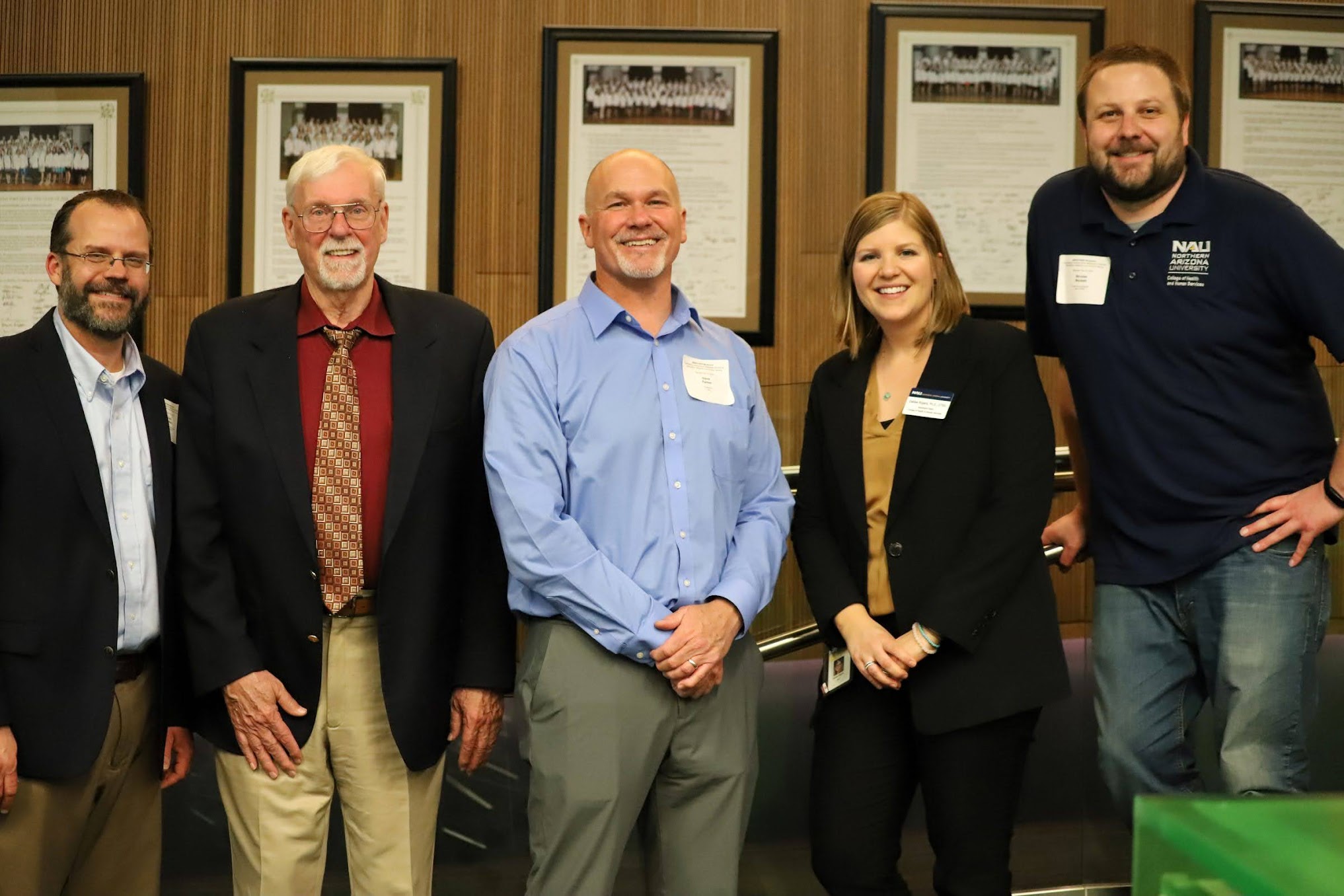A catalyst for change: Dr. Robert Trotter II

As the end of the academic year draws near, the Center for Health Equity Research (CHER) and the Arizona Biomedical Research Centre (ABRC) wrap up their 2022/2023 ABRC Education Series with its final two workshops; May 18, Supporting our Future: School and Community Collaboration for Child Health and Success; and May 25, Fifth Annual Yuma ABRC Forum: Collaborative Partnerships, Translating Research to Practice.
The end of the year also marks the end of an era for Regents’ Professor Emeritus Robert “Bob” Trotter II as he moves closer to full retirement. Trotter was instrumental in developing the original 2016 ABRC Education Series and has been either lead or co-lead of the series ever since.
What do you do at the end of an era? That is the question that many of us in the Center for Health Equity Research have been pondering following Trotter’s retirement. Although technically retired, that has not stopped him from continuing his involvement with CHER, research, mentorships, and event planning.
It would be difficult to find a person within CHER that has not interacted with Trotter at some point during their career, and even though he is retiring for good, his impact on CHER will remain for many years to come.
“Dr. Bob Trotter is the consummate collaborative scholar,” said Steve Palmer, professor, Department of Health Sciences and co-principal investigator of the ABRC Education Series. “He is genuinely passionate about bringing teams of people together around research that positively impacts communities. He develops connections between people that others might not readily recognize, thus, building powerful networks that inform and conduct research and improve education.”
“Serendipitous” is the word Trotter uses to describe his early academic career. He recalls the influence of a close family friend who once mentioned that they would choose anthropology if they could go back to school and do it all over again. It was from those early, friendly conversations that Trotter knew the career path he wanted to pursue.
“In all the mixture of what people do and how they think and how they see the world around them… it’s [anthropology that has] been very attractive to me,” said Trotter.
A naturally curious mind, Trotter graduated from the University of Nebraska Lincoln with degrees in zoology and physiology and five different minors.
“I got a great, great, great, education by changing majors every six months,” he joked while explaining his interest in going to medical school as a reason for so many different areas of study.
After graduation and enduring a brief career as a young executive, he decided it was time to go back to school and pursue his initial interest—anthropology. After a call with his undergraduate anthropology advisor, Trotter found himself in a doctoral program at Southern Methodist University studying medical anthropology.
“I frequently tell people that I have a degree in anthropology, and it basically licensed me for nosiness,” Trotter said. “I can ask people all sorts of questions and follow my curiosity.”
The freedom to ask questions paired well with his interest in evolution and studying how things change over time, particularly cultures and people.
“I wasn’t interested in theory for theory’s sake, I was interested in taking a theory, like evolution—evolution just means change through time. … I became really interested in: How do cultures change through time? How do you have innovation in a culture? How do you have stability and continuity in a culture? So, I live by serendipity,” he said. “I just kind of stumbled from one place to another in this confluence between culture and health and [my] interest in innovation and change.”
Fast forward a few decades to 2015, and yet another serendipitous moment for Trotter when the NAU vice president for research approached him with a proposal to expand NAU’s capacity for health research.
As part of his work with the research division, Trotter made strong connections between NAU and the Flagstaff Medical Center/Northern Arizona Healthcare, and with funding from ABRC, the ABRC Education Series was begun. Initial topics were around grant proposal development and human subjects in research.
Since then, the series has expanded to include more community partners, more workshops statewide, and some partners from outside of Arizona, including cross-border collaborations. This year marks the Fifth Annual Yuma ABRC Forum, which highlights some of these incredible partnerships that have been cultivated over time, but it also shows the wide-ranging impact this education series has had on our Arizona community and beyond.
Trotter has been essential to the ABRC Education Series and will continue to influence future workshops.
“I want to thank Bob for creating and initiating the ABRC Education Workshop series, working with the directors of the ABRC to secure funding, and overseeing the series for the last several years,” said Regents’ Professor Julie A. Baldwin, Department of Health Sciences and CHER. “It’s been an important part of our Center for Health Equity Research at NAU to be able to offer such timely educational programs on health topics of relevance to communities around the state. It’s also helped us to form extremely valuable partnerships with community-based agencies and become a trusted source of information for the public. We will always be very grateful to Bob for his leadership in this area.”